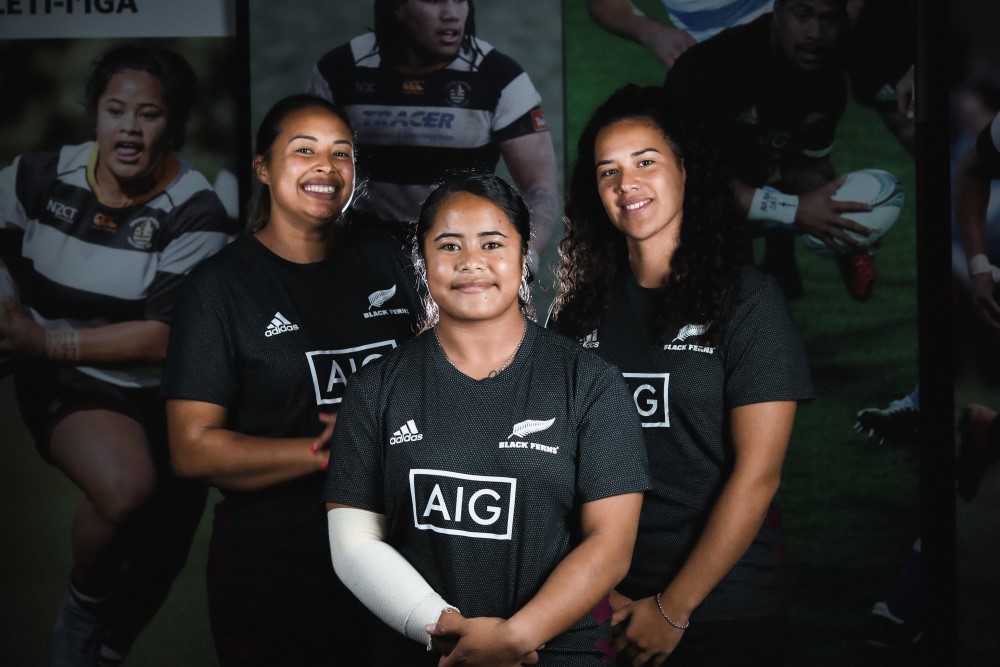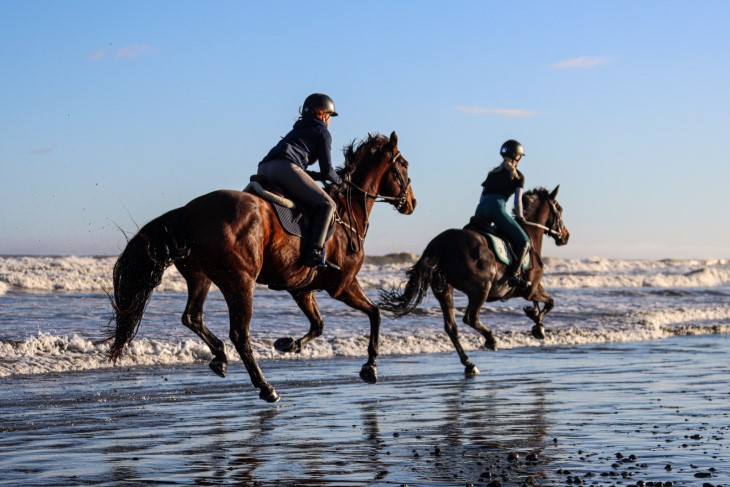“Managing concussion is everyone’s responsibility”
Three All Blacks attended a Wellington college in July. They shared their own experience, the importance of rest and recovery following a concussion, and the need to look after your mates.
All Blacks midfielder David Havili has suffered a few concussions during his rugby career. Some have been mild and others much worse.
He wants up and coming rugby players to know they need to recover properly.
David was one of three All Blacks - alongside Quinn Tupaea and Jack Goodhue - to attend a session at Aotea College in Wellington.
New Zealand Rugby (NZR) held a session with around 25 Māori and Pasifika school students at the Porirua school. The talk was on managing and preventing concussion.
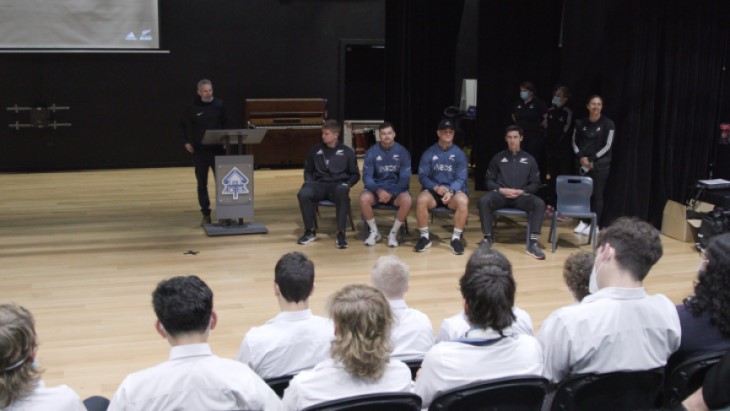
NZR is focused on improving player welfare outcomes for Pasifika and Māori rugby players, particularly teenagers (13 – 19 years).
Their research shows Māori and Pasifika players have higher rates of concussion and lower rates of reporting.
David has played 15 tests for the All Blacks. He says all players need to take concussion seriously.
“Sessions like this are extremely important,” says the 27-year-old from the Crusaders.
“Speaking from experience and having a few concussions myself, it really does affect your playing career. It's making sure that your friends and everyone else is okay that is playing the sport.
“You need to make sure you get the rest and recovery time that you need to keep playing the sport you love.”
Feeling the effects of concussion
David says all of his concussions have been different.
“I’ve definitely had a lot of neck pain myself a few times through concussion. So, it was easy enough for me to identify. It could be blurred vision, vomiting sometimes and headaches.
“It’s looking at how are you feeling and making sure you rest and recover properly.”
Fellow All Blacks midfielder Jack Goodhue encouraged rugby players to speak up when they suffer a concussion.
“It’s important to not say that you’re okay when you’re not. Do not be the tough man, try to be the hero, because you’ve got to think long term,” says Jack.
Nat Hardaker is one of our Injury Prevention Partners.
She says it’s “perfect” to have All Blacks talking about the importance of recognising concussion.
“It's amazing what a difference it makes,” she says. “Having people like All Blacks as ambassadors and influencers talking to young players, they take much more notice of them than they do of us.
“It's great to have them delivering messages on concussion management to improve player safety.”
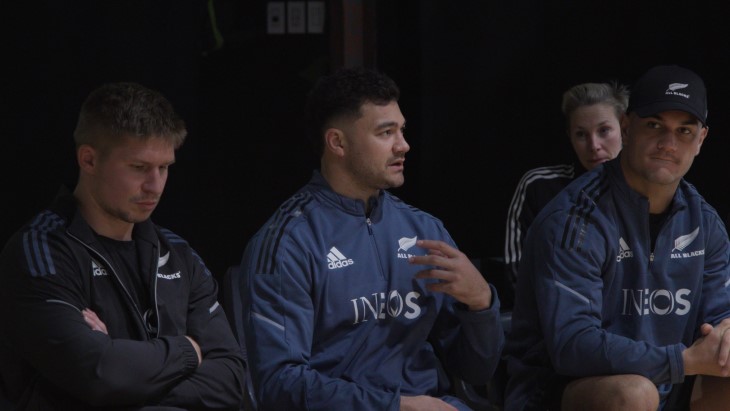
“Their brains are still developing”
Danielle Salmon is a Research Scientist with NZR. She specialises in concussion recovery.
NZR recommends if you're 19 and under then you should stand down from playing for 23 days following a concussion. If you're 19 and over, it's 21 days.
“What we find, particularly with the high school age players, those under 19, the brain is still developing,” says Danielle.
“So we want to make sure that before they come back to play, they're fully recovered.”
For players who don’t recover, the symptoms from the concussion are worse and the recovery can take longer.
Danielle says it’s crucial players rest fully in the first 48 hours following a concussion.
“We have to think about how we get back to activity and it’s so important to rest for 48 hours.
“You want to really look at avoiding screens, any kind of mental exercise, physical exercise. You need to think about letting the brain recover.”
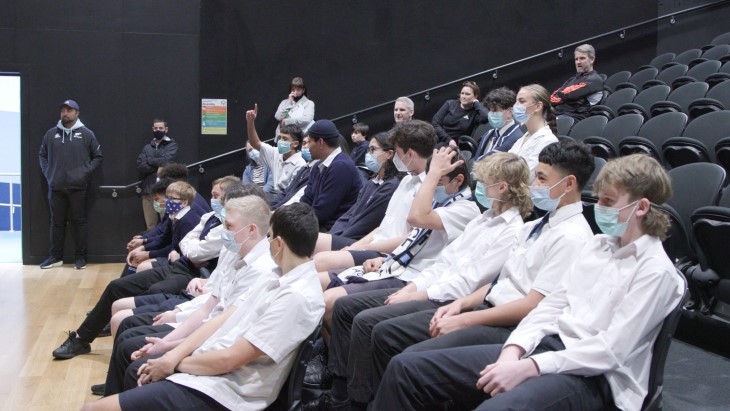
After two days, players can start to introduce light to moderate exercise.
“So you can go for a walk jog and again, you can still have symptoms and do that. But we want to just make sure that they don't get any worse after you've done that activity.”
The next steps are increasing the heart rate and seeing how the body responds. Then they can begin non-contact training. Things like catching and passing and training with the team.
Danielle says players need to focus on gradually reintroducing themselves to playing sport.
“So you’re back to school, back to work and you want to try and do that gradually. So starting with work or school at home, then going back to maybe half days, seeing how you feel with that. You need to monitor that it doesn't make it any worse and impact your recovery.”
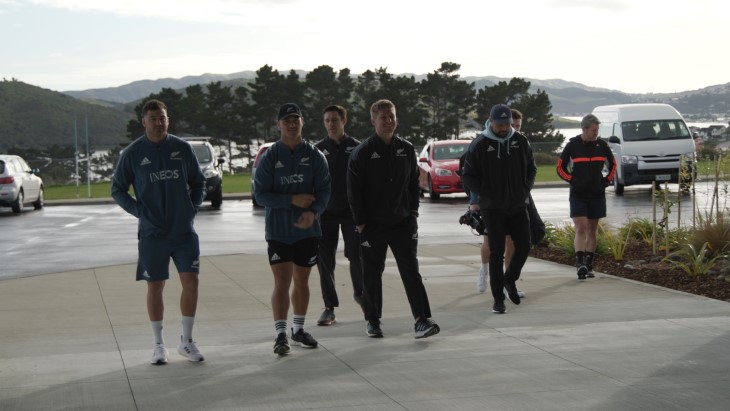
Keeping RugbySmart
In 2020 we increased our investment in the RugbySmart programme to $9.3 million over the next five years.
RugbySmart is recognised internationally as a world-leading rugby injury prevention programme.
It was first introduced in 2001. From 2017 – 2020, RugbySmart prevented an estimated 25,000 claims. It also limited the number of serious injury claims to less than one per annum.
Nat says the main focus of RugbySmart is preventing serious injuries.
“We want to do as much as we can to minimise the risk of injury. So that players can stay in the game, and they don’t miss out on playing with their mates,” says Nat.
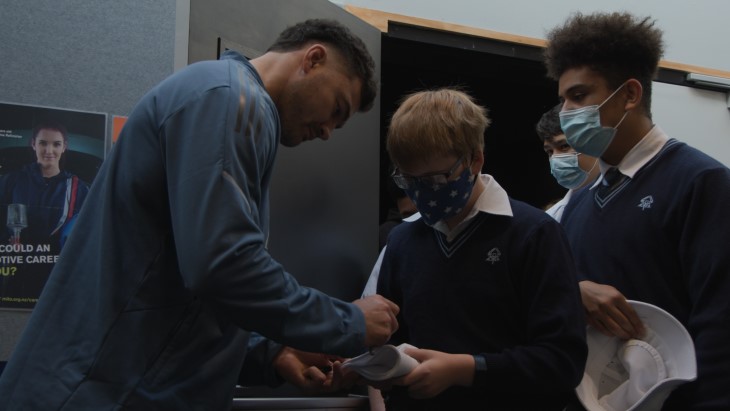
David says it’s a world-class programme.
“It's a great initiative from ACC. I mean to have ACC come into the schools and express what they're about, is awesome. And it just means that not only kids, but people around the country in rugby are being looked after properly.”
ACC and NZR are focused on improving the lower rates of reporting of concussion within Māori and Pacific rugby players.
“We are doing a lot of education to help us understand how to recognise concussion and that it's okay to report it,” says Nat.
“Some of the barriers to reporting concussion might be costs of health care and a bit of health literacy. Knowing what to do and where to go to get help.”
“They need to call it out”
David encourages rugby players to be honest and listen to their bodies.
“Concussion can affect people in different ways,” he says. “Being able to understand that you've only got one brain. We need to understand that concussion is a big thing.
"And make sure that with all the right recovery it should be safe for you to return and listen to your mates.”
Danielle says it’s everyone’s responsibility to manage concussion.
“There's going to be scenarios where a concussion happens in a game and the coach or the physio doesn't see it happen. So it's up to us as teammates on the field that I've got to step up and recognise, ok maybe they are not OK.
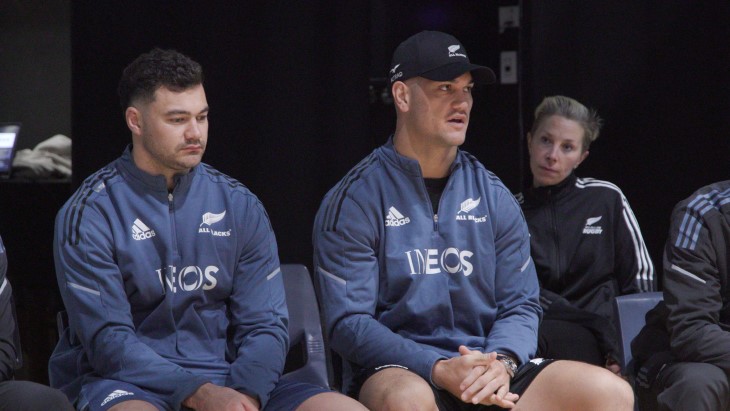
“That ownership sits with everybody - players, coaches, managers and parents.
“It’s important to have some knowledge of concussion and how to manage it. The ACC SportSmart is a great resource where you can learn more when you are in that space.”
Nat says everyone involved in rugby needs to call out concussion.
“I think the more that we do that, the more it creates an environment where it is okay to call it out and no one's going to be heckled for doing the right thing.
“That makes it easier for the players themselves to say that they think they have had a concussion. We need to continue changing the culture and provide a safe environment for reporting concussion.”
The Four Rs of Concussion Management for Rugby are:
Recognise, Remove, Recover and Return.
For more on Concussion management visit:



